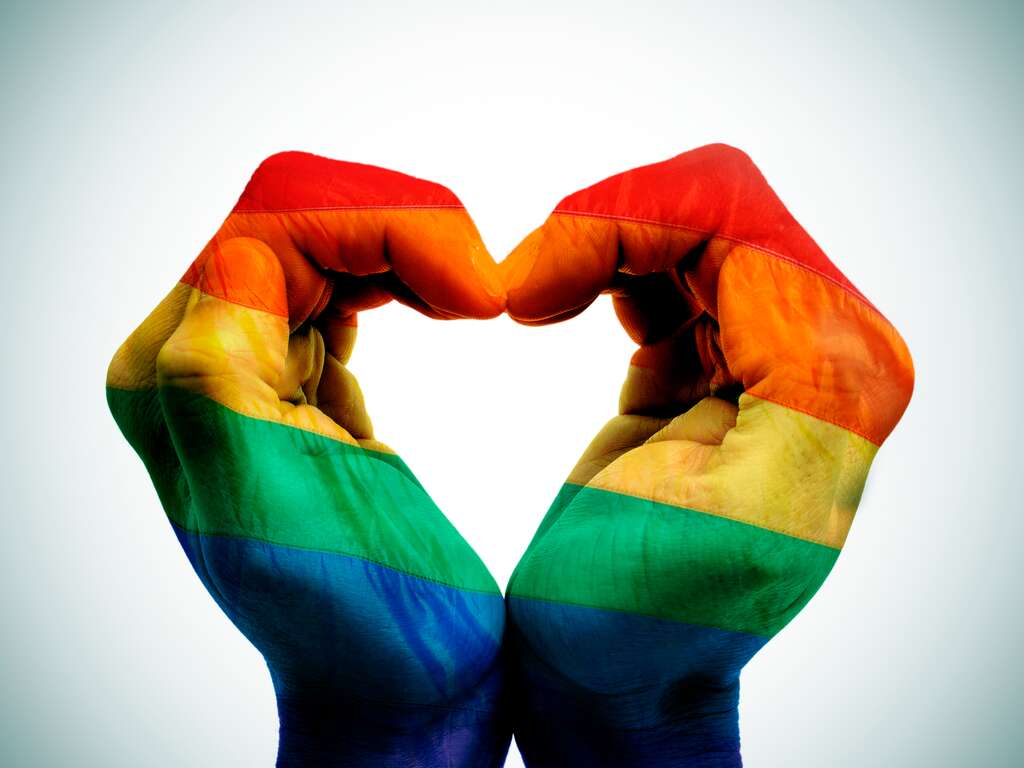People have unique qualities that make up their identity — all valid and vital parts of who they are. LGBTQIA2S+ (frequently shortened to LGBT) stands for lesbian, gay, bisexual, transgender, queer, intersex, asexual, two-spirit, and other identities and orientations. “Queer” is an umbrella term inclusive of the diverse range of sexual orientations, gender identities, and gender expressions.
Like all members of any community, the LGBTQIA2S+ community struggle with addiction. These struggles can lead to an increased risk of mental health issues and higher substance misuse and abuse rates in the LGBT community.
With unique backgrounds and experiences, people who identify with the LGBTQIA2S+ community can find it hard to feel welcomed and safe when ready to find substance abuse treatment.
Read on to learn more about the importance of LGBTQIA2S+ and addiction treatment programs and why they are essential for those seeking recovery.
LGBTQ Substance Abuse and Addiction Statistics
While the LGBTQIA2S+ community has made significant progress in the last few decades, social stigma and discrimination remain. One out of four LGBT adults experiences widespread discrimination at some point in their life. This is especially true for transgender individuals, with 27 percent reporting getting fired, denied a promotion or employment, or facing other forms of discrimination in the workplace.
Additionally, 8.9 percent of LGBT employees, including 6.5 percent of white LGBT employees and 11.3 percent of LGBT people of color, reported being mistreated because of their sexual orientation and gender identity. Sadly, the rampant discrimination, homophobia, transphobia, biphobia, and other forms of prejudice experienced by the LGBTQIA2S+ community happen in all aspects of life, including at home and in social, education, housing, healthcare, and legal settings.
Because of this, many LGBTQIA2S+ individuals turn to alcohol or drugs as a coping mechanism or for self-medication in response to these issues. This leads to higher rates of addiction and substance abuse in the LGBTQIA2S+ community than in the general population.
Research shows that LGBTQIA2S+ are more likely to misuse substances than their heterosexual counterparts. Aside from having a greater risk of developing a lifetime substance use disorder, sexual minorities also have higher rates of alcohol abuse and mental illness in their lifetime.
Additionally, the Substance Abuse and Mental Health Services Administration (SAMHSA) reported the following facts about LGBT people in 2018:
- One in two struggles with illegal drug abuse
- 70 percent have alcohol use issues
- One in five battles with illicit drugs and alcohol
- Two in five deal with a severe mental illness
- Young adults have greater chances of mental health issues, depression, and suicide
While LGBTQIA2S+ individuals have a strong sense of pride and resilience, they often experience social isolation, discrimination, marginalization, and trauma. These factors can lead to harmful coping mechanisms, such as substance abuse, resulting in addiction.
Risk Factors of LGBTQIA2S+ Mental Health Issues and Addiction
LGBT people experience certain risk factors that can put them at a higher risk of mental health issues, depression, addiction, and suicide. These include the following.
Coming Out
Coming out is discovering, accepting, and expressing one’s sexual orientation, gender identity, or gender expression. While every member of the LGBTQ community deserves a welcoming coming out experience, many LGBTQIA2S+ individuals face rejection, discrimination, and even violence from friends and family when they come out. This is especially true for LGBTQ youth who live in unsupportive households.
Rejection, Discrimination, and Violence
LGBTQIA2S+ individuals can experience discrimination in housing, employment, healthcare, education, and other settings. This can lead to a feeling of isolation from loved ones and society as a whole. Additionally, hate crimes against LGBTQIA2S+ people often go unreported or unaddressed by the legal system.
Internalized Lesbian, Gay, Bisexual, Transgender-related Phobias
Unfortunately, not only heterosexual adults but also members of the LGBTQIA2S+ community can hold prejudicial and discriminatory views on their sexual orientation, gender identity, or gender expression.
These tendencies for fear, shame, and self-loathing are often internalized homophobia, transphobia, and biphobia. The experience of living in a society that devalues your identity can be highly damaging. It can lead to mental health issues, depression, and addiction, especially for questioning youth and young adults.
Trauma
LGBT individuals are more likely to experience trauma than heterosexuals. This is partly because of the discrimination and bullying they face and the likelihood of experiencing verbal, physical, or sexual abuse.
Trauma can manifest in different ways, and those who cope with trauma may be more likely to struggle with mental health issues and addiction.
Homelessness
Homelessness is especially prevalent among LGBTQ youth compared to their heterosexual counterparts. This is because of family problems, a lack of safe environments, and the marginalization they may face when accessing public shelters or housing options.
Homeless LGBTQ youth can be especially vulnerable to mental illnesses, sexually transmitted diseases, alcohol and substance abuse, and even death.
Inadequate Mental Health Care
LGBT individuals may not seek mental health treatment because of stigma, discrimination, and a lack of understanding from healthcare providers. This can be especially true for transgender individuals who require gender-affirming care.
Additionally, many insurance companies do not cover LGBTQIA2S+ specific mental health care or provide limited coverage.
Substance Abuse Within the LGBTQ Community
Substance abuse is a severe issue for the LGBTQIA2S+ community and can lead to addiction or co-occurring disorders. It can also have devastating effects on an individual’s physical and mental health, leading to serious family problems, relationship conflicts, financial issues, and legal troubles.
Here are some of the common substances that LGBTQIA2S+ individuals may abuse:
- Tobacco: Tobacco use is more prevalent among LGBTQIA2S+ people than the general population, with higher smoking and vaping rates.
- Alcohol: Alcohol abuse is a frequent problem within the LGBTQIA2S+ community and can lead to serious health complications and interpersonal conflicts.
- Marijuana: Marijuana is widely used by those in the LGBTQIA2S+ community. While marijuana may temporarily relieve stress or anxiety, its long-term use has been linked to mental health issues such as depression and psychosis.
- Illicit drugs: The use of illegal drugs is more common among LGBTQIA2S+ members than in other populations, with higher rates of cocaine and club drug use.
- Prescription drugs: Overmedication and misuse of prescription drugs, especially opioids, are significant concerns for the LGBTQIA2S+ population.
- Amphetamines: These are highly addictive substances, and LGBTQIA2S+ individuals may use them to cope with stress, depression, or anxiety.
- Heroin: This opioid is a highly addictive drug that often leads to health complications and overdose.
While substance use disorder is a severe challenge for the LGBTQIA2S+ population, help is available. Addiction treatment centers welcoming LGBTQ-specific care can be excellent resources for drug abuse or addiction patients.
Addiction Treatment Options for LGBTQIA2S+ at Turning Point
LGBTQ individuals can find support at Turning Point of Tampa to meet their needs. Our programs provide a safe and supportive environment where LGBTQIA2S+ people can enter treatment and work on their recovery without fear of judgment or discrimination.
Current research suggests that substance abuse programs must address unique factors in LGBT patients, including family issues, discrimination, sexuality-related phobias, violence, and trauma.
Specialized groups can alienate LGBT clients in recovery, at Turning Point non specialized programs based on gender are all inclusive. That said, we have experienced better outcomes by offering specialized groups on the needs of our client population.
Turning Point of Tampa has proven success with with the LGBTQIA2S+ community and we welcome transgender adults.
Treating addiction, eating disorders, and co-occurring disorders is what we have been doing for over 35 years.
At Turning Point of Tampa, LGBTQIA2S+ individuals will receive comprehensive care from experienced doctors, clinicians, and addiction professionals who understand their unique needs.
Treatment typically includes:
- Gender-affirming care for transgender people
- Medical detoxification
- Medication-assisted treatment (MAT)
- Cognitive behavioral therapy (CBT)
- Individual and group counseling sessions
- 12 Step Groups
- Community Support groups
- Aftercare
LGBT patients begin with an assessment to enter Turning Point treatment centers, with medical detox, residential or outpatient treatment programs our clients may enter at one level and continue through the continuum of care.
For those LGBTQIA2S+ who have endured conversion therapy, please note Turning Point of Tampa believes that type of treatment is unethical, ineffective, and a very harmful practice. From the top down, our treatment centers that do not support or promote such treatment.
The Key to Successful Recovery
The key to successful recovery is finding a treatment center that welcomes the LGBTQIA2S+ community with open arms. We believe Turning Point of Tampa is that safe place.
We are dedicated to improving our patients lives by providing comprehensive care and tailored treatment plans. With the right help, LGBT individuals can find support in their recovery journey.
Access to Substance Abuse Treatment Regardless of Sexual Orientation
LGBTQ individuals facing substance misuse or who have a substance use disorder can benefit significantly from help with addiction treatment programs that care. Treatment centers that include gender-affirming care and other services tailored to the unique issues of their clients provide the best possible outcomes for this community.
With access to the right treatment program and support from friends and family members, LGBTQ individuals can begin to live an addiction-free life.
If you or a loved one are a member of the LGBTQIA2S+ community and are suffering from substance abuse and addiction, Turning Point of Tampa can help.
We provide a safe, inclusive, and supportive environment specifically designed to meet the needs of all our clients. Our specialized care and treatment programs welcome the specific needs of Queer patients, and our open and accepting staff is dedicated to providing the best possible care to help you reach a full recovery.
Sources:
https://nida.nih.gov/research-topics/substance-use-suds-in-lgbtq-populations
https://www.nami.org/Your-Journey/Identity-and-Cultural-Dimensions/LGBTQI
https://www.ncbi.nlm.nih.gov/pmc/articles/PMC3388170/
https://www.samhsa.gov/data/sites/default/files/reports/rpt23252/7_LGB_2020_01_14_508.pdf
https://williamsinstitute.law.ucla.edu/publications/lgbt-workplace-discrimination/







